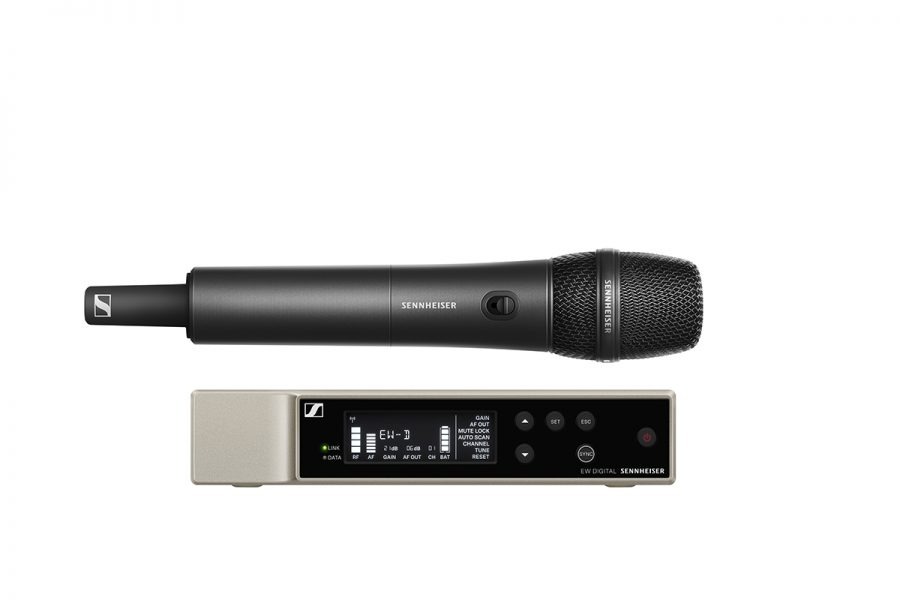What was the goal in the development of Evolution Wireless Digital?
The initial goal was to develop a product that would be capable of carrying over the strong product line of EW-D into a new decade. We are currently in a time when criteria such as user experience design and smart connectivity matter just as much as the classical performance criteria like RF reliability and pristine audio.
What features will professional audio engineers find appealing?
Professional audio engineers will love the fact that they are getting rock- solid digital wireless in the UHF spectrum for the first time at an affordable price point. The product comes with the ability to set up multiple wireless channels in a few minutes via the automatic frequency setup of the Smart Assist App, an audio input dynamic range of 134dB, five times more than the usual 120dB, low latency of 1.9 milliseconds and a transmitter battery life of up to 12 hours with a rechargeable battery pack, just to name a few features. While the channel count is always dependent on the environment you’re in, EW-D can theoretically allow up to 90 channels based on how efficiently the system can operate it’s equidistant channel spacing.
How does the Smart Assist App benefit end users?
We decided to get rid of infrared as a configuration interface and replace it with Bluetooth Low Energy (BLE), providing us with the required smart device connectivity. There is demand for ‘an engineer in the pocket’ – someone taking care of the technical stuff in the background while the user can concentrate on their performance or other important tasks. The automated multichannel setup and the support hub sections in the app were born from this demand.
What does offering the highest input dynamic range of any other system mean for end users?
For the artist, EW-D makes sure that his or her performance is captured in the best way possible. For the engineer, it takes away the pain of potentially running into the need for entering the stage during a performance in order to adjust the sensitivity in real-time. There is no other product on the market at this price point that offers the input dynamic range of EW-D.
How important is it for you to bridge the gap between professional engineers and prosumers?
More than two decades ago, Evolution Wireless made sure we gained a foothold outside of the very professional live performance and broadcast market. We learned how important it is to attract our end users already very early in their journey, to grow with them, and to be their companion and their trusted partner as they advance. That goes back to the idea of ‘evolving with you’ and EW-D.
How does EW-D compare to existing wireless offerings?
EW-D marks our mid-tier range of wireless microphones with XS Wireless sitting below and our Digital 6000 series as the high-end range. Analogue ew G4 is still a part of our active portfolio, so both series, ew G4 and EW-D, co-exist. This is simply because with ew G4, we have delivered state-of-the-art analogue wireless solutions, and there are hundreds of thousands of satisfied evolution wireless users globally. Consequently, to give those users the chance to further extend their existing setups, the products will continue to co-exist for the foreseeable future. However, we anticipate our customers will likely make the change to digital for the benefits offered by digital workflows and digital technologies.
What has the response been like?
The feedback we’ve received so far has been overwhelming. This product has spent countless hours being field-tested with engineers, performers and artists long before it hit the market in June. All of them were impressed with the build quality, the performance EW-D delivers as well as the simplicity it offers in terms of setup and running. For me as a product manager, this kind of feedback warms my heart and makes me truly excited about EW-D entering the market and making our customers’ lives easier.
This article originally appeared in issue #264 of TPi, which you can read here.
Photos: Sennheiser


